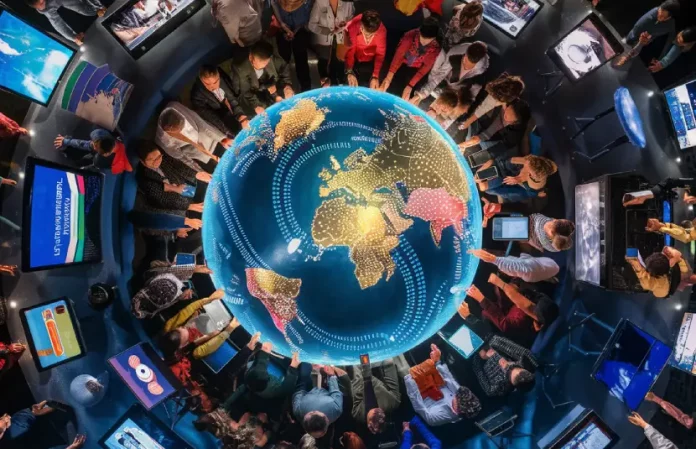
World Telecommunication and Information Society Day (WTISD) is celebrated annually on 17th May. This day is dedicated to raising awareness about the possibilities that the use of the Internet and other Information and Communication Technologies (ICT) can bring to societies and economies, as well as ways to bridge the digital divide. The celebration of WTISD is significant, especially in the context of the ever-growing digital transformation of the world.
History and Significance
Origins of WTISD
WTISD was first celebrated in 1969, marking the founding of the International Telecommunication Union (ITU) on 17th May 1865. The ITU is a specialized agency of the United Nations responsible for issues concerning information and communication technologies. The day was later expanded to include the broader aspects of the information society when the World Summit on the Information Society (WSIS) was held in 2005. Since then, WTISD has been celebrated as a way to promote the importance of communication technologies in today’s world.
Importance of ICT
Information and communication technologies have transformed how people interact, conduct business, access education, and receive healthcare. They play a crucial role in economic development, social inclusion, and the overall quality of life. WTISD underscores the need to leverage ICT for sustainable development and the betterment of humanity.
The Theme for 2024: “AI for All: Ensuring Inclusive Digital Transformation”
Each year, WTISD focuses on a specific theme to address current challenges and opportunities in the ICT sector. For 2024, the theme is “AI for All: Ensuring Inclusive Digital Transformation.” This theme highlights the growing impact of artificial intelligence (AI) on various aspects of life and emphasizes the need for inclusive strategies to ensure that everyone benefits from the advancements in AI technology.
AI and Digital Inclusion
AI has the potential to revolutionize many sectors, including healthcare, education, agriculture, and finance. However, the benefits of AI must be accessible to all, including marginalized and underserved communities. Ensuring digital inclusion involves addressing issues such as affordability, digital literacy, and infrastructure development. By focusing on inclusive AI, WTISD 2024 aims to promote policies and initiatives that bridge the digital divide and create equitable opportunities for all.
Bridging the Digital Divide
Challenges in Developing Countries
One of the primary focuses of WTISD is to highlight the digital divide, particularly between developed and developing countries. Many developing countries face significant challenges, such as a lack of infrastructure, high costs of connectivity, and low digital literacy rates. These barriers prevent millions from accessing the benefits of ICT.
Initiatives to Promote Digital Inclusion
To bridge the digital divide, several initiatives are being undertaken at both international and national levels. Programs aimed at building ICT infrastructure, reducing the cost of internet access, and promoting digital literacy are crucial. Organizations like the ITU are working with governments, private sector partners, and civil society to implement these initiatives effectively.
The Role of Governments and Organizations
Policy Development and Implementation
Governments play a vital role in fostering an environment conducive to the growth of ICT. This includes developing policies that support innovation, investing in infrastructure, and ensuring fair competition in the ICT sector. Additionally, governments must implement regulations that protect users’ data and privacy, fostering trust in digital technologies.
Collaboration with the Private Sector
The private sector is also a key player in advancing ICT. Companies in the tech industry can drive innovation and bring new technologies to market. Partnerships between governments and private companies can accelerate the deployment of ICT infrastructure and the development of digital services. These collaborations are essential for creating a connected and inclusive society.
The Future of Telecommunication and Information Society
Emerging Technologies
The future of telecommunication and information society is promising, with emerging technologies such as 5G, the Internet of Things (IoT), and AI set to transform the landscape further. These technologies will enable faster communication, smarter cities, and more efficient use of resources.
Ensuring Sustainable Development
As the world becomes increasingly digital, it is crucial to ensure that this transformation is sustainable. This involves considering the environmental impact of ICT, promoting digital skills for all, and ensuring that technological advancements do not exacerbate existing inequalities. WTISD serves as a reminder of the importance of sustainable and inclusive digital development.
Conclusion
World Telecommunication and Information Society Day 2024 is a pivotal occasion to reflect on the impact of ICT on our lives and to address the digital divide. By focusing on themes like “AI for All: Ensuring Inclusive Digital Transformation,” WTISD highlights the need for inclusive policies and initiatives. As we celebrate this day, it is essential to continue working towards a future where everyone can benefit from the digital revolution.
Stay updated with the latest current affairs and insightful blog posts by following Freshersnow.
| You Can Also Check | |
| Current Affairs | |



